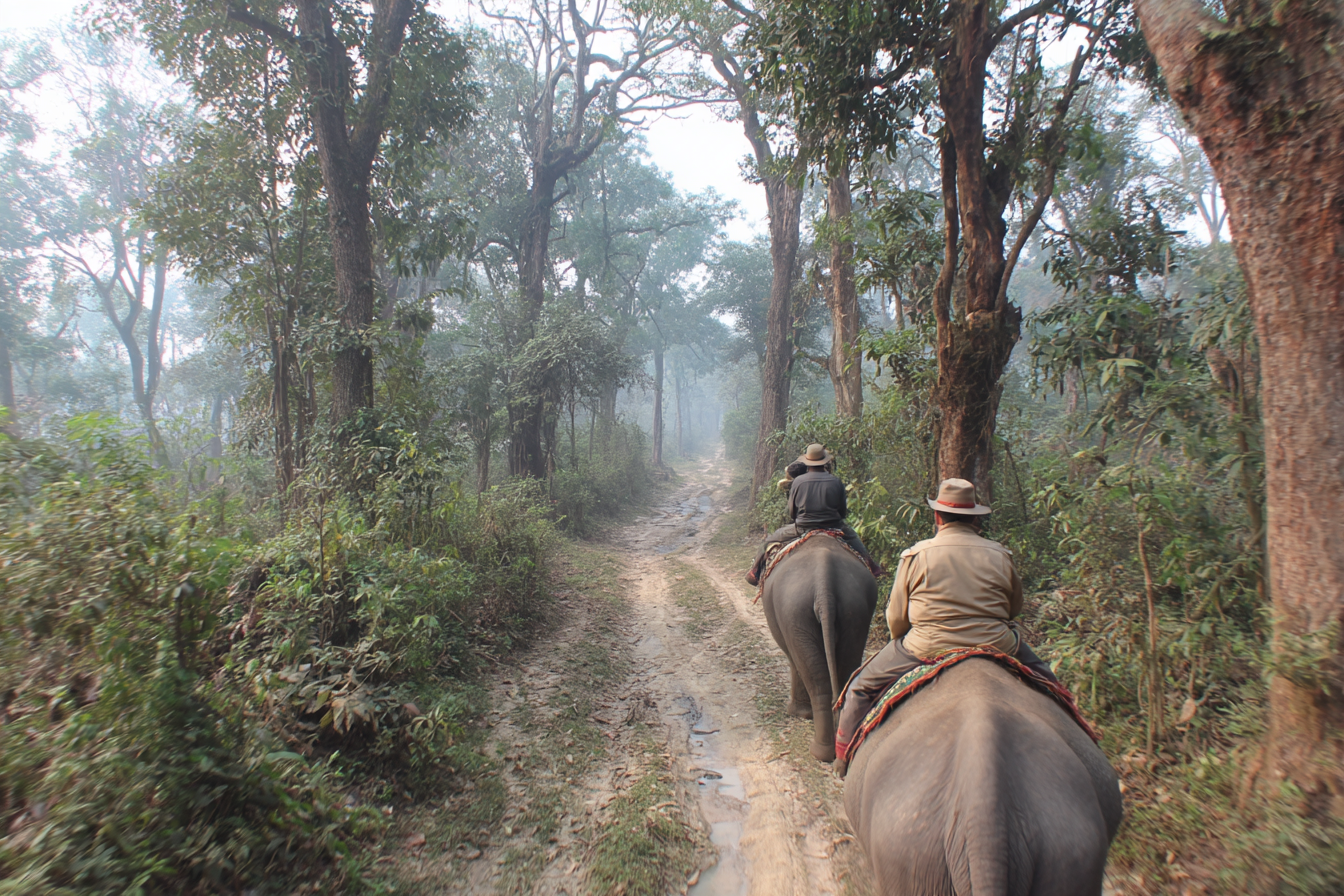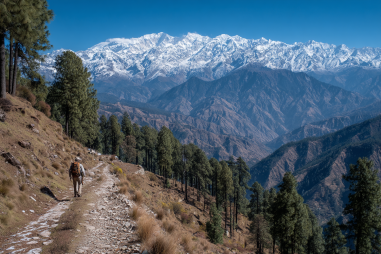Elephant rides have long been one of the more popular activities for tourists visiting Chitwan National Park in Nepal. Nestled in the subtropical lowlands, this UNESCO World Heritage site offers an incredible opportunity to experience the diverse wildlife and lush landscapes of the region. Riding an elephant through the dense jungle paths is a unique way to spot rare animals, including rhinos, deer, and exotic birds. However, as awareness grows about animal welfare, many travelers are seeking to understand more about how these rides operate, the ethical concerns involved, and alternative ways to enjoy the park’s natural wonders safely and responsibly.
What to Expect on an Elephant Ride in Chitwan
When you decide to take an elephant ride in Chitwan National Park, you can expect an adventure that blends excitement with a chance to get close to nature. The rides typically start early in the morning or late in the afternoon, times when wildlife is most active. You climb aboard a wooden howdah, a carriage mounted on the elephant’s back, and then the mahout (elephant handler) guides these gentle giants through the forest trails. The slow but steady pace allows you to listen to the sounds of the jungle, watch for camouflaged animals, and experience the scenery from a unique height.
The rides can last anywhere from an hour to a few hours, depending on the chosen package and your interests. Guides accompanying the ride are often knowledgeable about the flora and fauna, sharing interesting facts and pointing out signs of wildlife activity. While elephants have been used traditionally for transportation and logging in the region, the rides now primarily serve tourism purposes, giving visitors a glimpse of an almost untouched natural environment.
Ethical Concerns and Animal Welfare
While elephant rides are undeniably a memorable way to explore Chitwan National Park, there are important ethical questions that many travelers should consider. The welfare of the elephants themselves is a central concern, as there have been reports worldwide about harsh training methods, overworking, and inadequate care of captive elephants in tourist facilities. In some cases, the process called “training” or “breaking” the elephants can be traumatic and painful, raising significant animal rights issues.
In Chitwan, efforts have been made to regulate and monitor elephant tourism, but standards can vary between operators. Some elephants live in poor conditions, suffer from injuries caused by equipment, or endure long hours carrying heavy loads without sufficient rest or proper nutrition. Being mindful of these issues, many animal welfare organizations recommend avoiding rides that stress or harm animals.
Instead of encouraging harmful practices, thoughtful travelers can ask operators about how elephants are treated, whether mahouts are certified, and if the facility prioritizes the health and happiness of its animals. Supporting establishments that follow strict welfare guidelines or are involved in conservation efforts helps promote more humane tourism.
Alternative Wildlife Viewing Options
If you’re concerned about the ethical impact of elephant rides or just want to explore the park differently, Chitwan National Park offers several excellent alternatives to experience its wildlife:
- Jeep Safaris: These are widely available and offer a comfortable way to traverse longer distances while spotting animals that prefer open spaces such as deer, wild boar, and even elusive tigers. Jeep safaris are less intrusive and can cover more ground in less time.
- Canoe Rides: Floating down the Rapti River or smaller tributaries by canoe offers a peaceful perspective to watch aquatic birds, crocodiles, and other riverine creatures in their natural habitat without disturbing the ecosystem.
- Nature Walks and Bird Watching Tours: Guided walking tours are excellent for those looking to get closer to the undergrowth, smaller mammals, and diverse bird species. Rangers and naturalists provide detailed insights into the park’s biodiversity on foot.
- Bicycle Tours: Adventurous travelers may choose to cycle along designated trails around the park’s outskirts, blending exercise and nature observation without relying on motorized transport or animal rides.
Exploring via these alternatives sometimes requires a bit more effort and patience but can be equally rewarding emotionally and visually, all while supporting responsible tourism practices.
Safety Tips for Tourists
Whether you opt for an elephant ride or another wildlife experience in Chitwan National Park, safety should always be a priority. Here are some tips to keep in mind:
- Listen to Your Guide: Always follow the instructions of your naturalist or mahout. They know the behavior of both the animals and the terrain, which is vital for your safety.
- Keep a Safe Distance: Wild animals can be unpredictable. Maintain a respectful distance and never attempt to feed or provoke any wildlife.
- Wear Appropriate Clothing: Light-colored clothes, long sleeves, and sturdy shoes are recommended to protect against insects and thorns.
- Bring Essentials: Carry water, insect repellent, and sun protection to stay comfortable and healthy during your trip.
- Avoid Loud Noises: Keep voices low and movements gentle to avoid startling animals.
- Be Aware of Physical Limits: Elephant rides can sometimes be bumpy and physically demanding. If you have back problems or other health conditions, consult your doctor beforehand.
By preparing properly and respecting wildlife and local guidelines, you can ensure a safe and enjoyable experience in the park.
Choosing to Experience Chitwan Responsibly
Chitwan National Park is a treasure trove of biodiversity and offers one of Nepal’s best wildlife experiences. Elephant rides have traditionally been a popular way to explore this stunning landscape, but it’s essential to approach this activity with both curiosity and respect for animal welfare. Being informed about how elephant rides operate, the ethics behind them, and understanding alternative viewing methods can help you make choices that support sustainable tourism.
Ultimately, the goal is to enjoy Chitwan’s wonders without compromising the well-being of its incredible animals. Whether you embark on an elephant ride or choose another adventure, responsible travel helps protect the park for future generations to enjoy.







